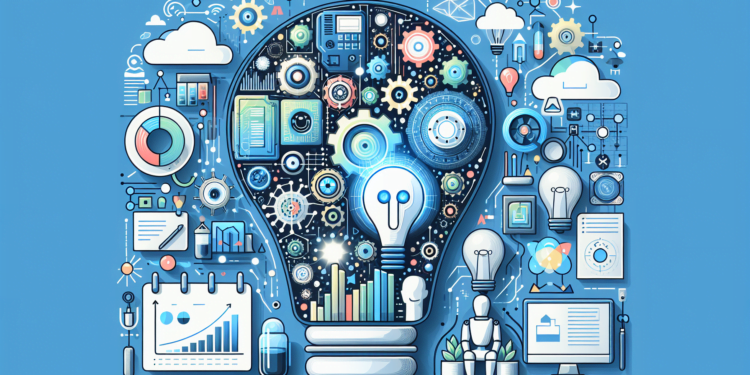The advancement of artificial intelligence has been intrinsically linked to the development and implementation of intelligent agents. These are systems capable of perceiving their environment and acting autonomously to achieve certain goals.
Perception and Action: The Foundations of an Agent
Each intelligent agent is characterized by having sensors and actuators. The sensors allow them to gather information about their surroundings, which can range from a room to cyberspace, depending on their specific application. Actuators, on the other hand, are the means by which the agent affects the environment. The nature of these sensors and actuators will largely define the complexity and capacity of the agent.
Types of Intelligent Agents
The classification of intelligent agents can be based on their level of perception and autonomy. Among the most notable are:
- Simple Reactive Agents: They use conditional rules to act directly based on perception, without an internal thought process.
- Model-Based Reactive Agents: They possess an internal state that allows them to take their environment into account when making decisions.
- Goal-Based Agents: In addition to having a model of the world, these agents have a set of goals that guide their behavior.
- Utility-Based Agents: They can measure how “good” a situation is with a utility function, aiding them in choosing between various alternatives.
- Learning Agents: Capable of adapting and enhancing their performance over time based on past experiences.
Hybrid Intelligent Agents combine various architectures to address greater complexities and are especially important in the design of advanced AI.
Algorithms and Learning
Algorithms are the heart of intelligent agents. In machine learning, there’s a clear division between supervised, unsupervised, semi-supervised, and reinforcement learning. Each of these methods has specific advantages and limitations, and the choice of one over another will greatly depend on the context and the nature of the available data.
Supervised Learning
This type of algorithm works with labeled data, where the agent tries to learn a function that maps inputs to correct outputs. It is useful in situations where the desired behavior is known, and the agent can be guided by examples.
Unsupervised Learning
In this scenario, the agent is provided with unlabeled data, and its goal is to find patterns or underlying structures in the input data. Techniques such as clustering and dimensionality reduction are common in this type of learning.
Semi-Supervised and Reinforcement Learning
Combining elements from both previous types, semi-supervised learning allows agents to work with a limited amount of labeled data supplemented with larger amounts of unlabeled data. On the other hand, in reinforcement learning, the agent learns to make sequential decisions by getting feedback in the form of rewards or punishments.
Emerging Use Cases
Intelligent agents are being utilized in a broad range of applications, from virtual personal assistants to autonomous systems in the automotive industry. They are also transforming sectors such as finance, with automated trading algorithms, and healthcare, with diagnostic systems and personalized patient monitoring.
Challenges and Ethical Considerations
As intelligent agents become more autonomous, ethical questions arise about their impact on society. Issues such as autonomous decision-making, privacy, and data security have become relevant topics of discussion among researchers and regulators.
Towards the Future: Autonomous and Adaptive Agents
With the evolution of machine learning and the capabilities of intelligent agents, a future is envisioned where these systems can operate with near-human levels of autonomy and adaptability. The development of increasingly sophisticated agents promises to push the boundaries of what technology can achieve, presenting both opportunities and challenges for humanity.
In conclusion, understanding intelligent agents is essential for anyone interested in AI. Their study and development continue to provide a fertile area for research and practical application, opening up new questions about the relationship between artificial intelligence and human experience. With each advancement, we move closer to the reality of having systems that not only carry out tasks but understand and adapt to their contexts in a way that, until recently, was only possible in the imagination.






















